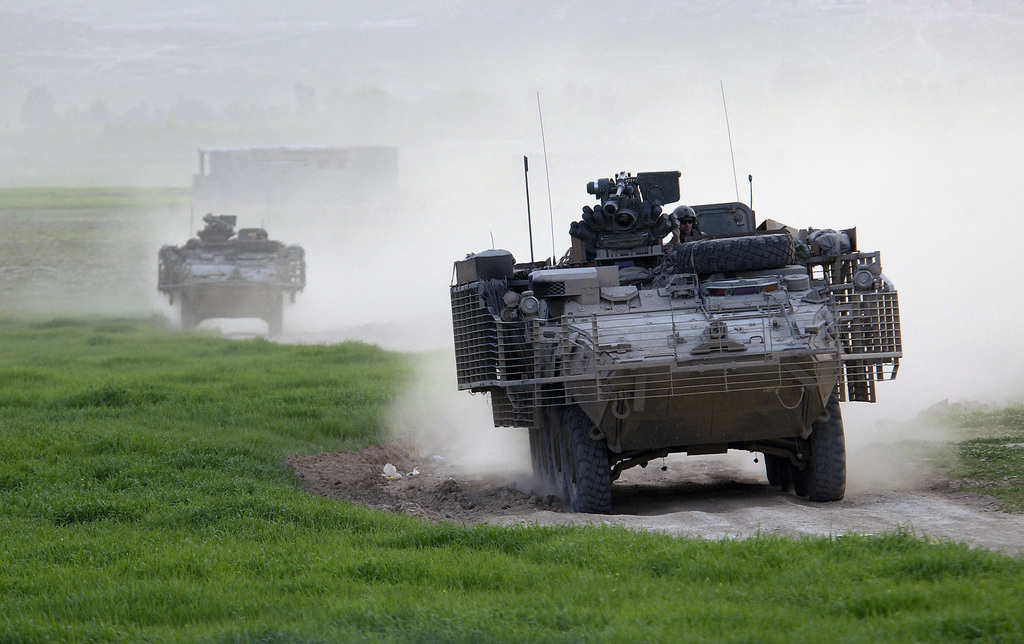
This post is also available in:
 עברית (Hebrew)
עברית (Hebrew)
Advanced military weapon systems are vulnerable to cyber attacks. One of them has been the US Army’s Stryker family of 8×8 wheeled armored vehicles, which will soon get cybersecurity systems. This comes a year after it first emerged that unspecified “adversaries” had successfully launched cyber attacks on up-gunned XM1296 Stryker Dragoon variants.
A 2018 report from the Government Accountability Office (GAO), a Congressional watchdog, highlighted digital radios, radar receivers, and other wireless links as potential vectors for cybersecurity attacks on American weapon systems. These were in addition to more physical pathways to gaining access to systems or networks, such as USB and other ports on computers and other pieces of equipment, and getting hardware that has been tampered with in some way into the supply chain.
“Adversaries demonstrated the ability to degrade select capabilities of the ICV-D when operating in a contested cyber environment,” according to an annual report from the Pentagon’s Office of the Director of Operational Test and Evaluation. “In most cases, the exploited vulnerabilities pre-date the integration of the lethality upgrades.” The “lethality upgrades” referred to here center on the integration of a turret armed with a 30mm automatic cannon onto the Infantry Carrier Vehicle (ICV) variant of the Stryker, resulting in the Dragoon version. The indication here is that the cyber vulnerabilities were present in systems also found on unmodified ICVs, suggesting that the issues are, or at least were, impacted other Stryker variants, as well.Cybersecurity firm Shift5 received a $2.6 million contract from the Army’s Rapid Capabilities and Critical Technologies Office (RCCTO) to “provide unified cybersecurity prototype kits designed to help protect the operational technology of the Army’s Stryker combat vehicle platform.”
Over the course of a year, Shift5 will develop, test, and refine an enhanced vehicle security system prototype and deliver a transition-ready product,” the firm’s press release added. “The Shift5 solution will increase the cyber survivability of the vehicle across the full lifecycle.”
The company’s products are already deployed protecting commercial rail and aircraft, as reported by thedrive.com.

























